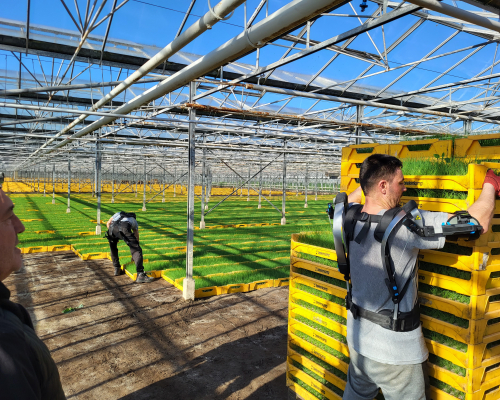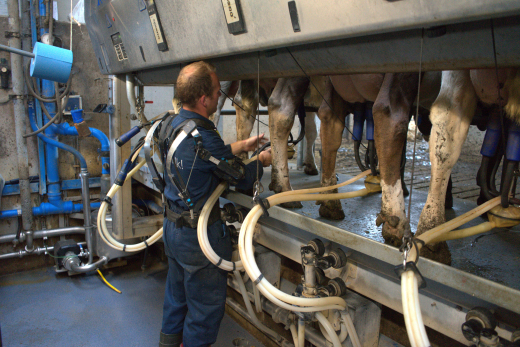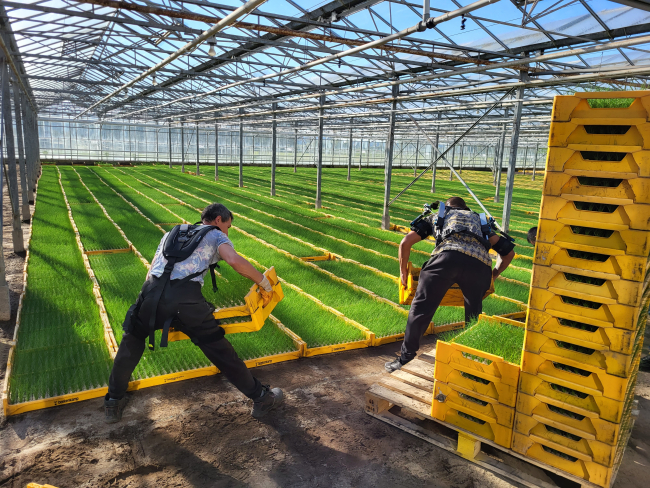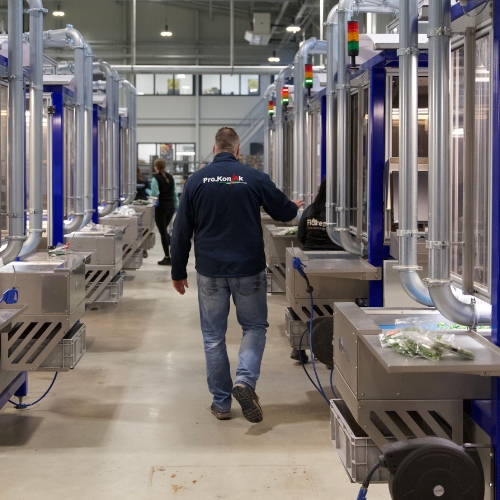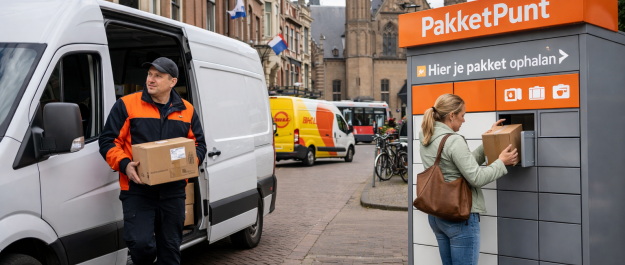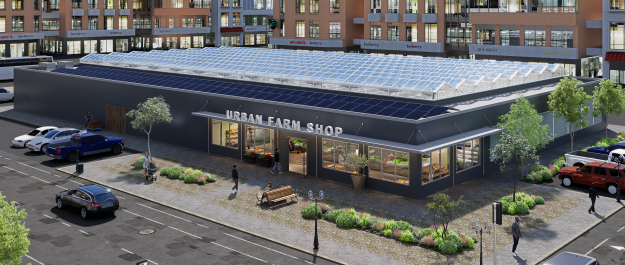Every day, people here work on crop improvement, sustainability, energy savings, and digitalisation. People-oriented innovations are also in the spotlight. For instance, the employment agency ProKonak is conducting a pilot in greenhouse horticulture with the exoskeletons of Skelex. These devices support the back, arms, and shoulders of production workers, helping them avoid short- and long-term issues from repetitive movements performed multiple times a day.
Exoskeletons of Skelex
The Hague-based company Skelex develops exoskeletons to reduce the strain of physical work. Bart Bakkum, managing director: “The development of exoskeletons started at TU Delft and TNO to prevent back and other complaints during aircraft maintenance. Over ten years, the original prototype evolved into a lightweight and ergonomic product, already being used by many people around the world in all kinds of industries.” In fact, anyone who performs repetitive work that strains the lower back, neck, shoulders, or arms can benefit from it. Grocery delivery drivers, plasterers, assembly line workers, construction, healthcare, and industry workers can all find it useful.
“Horticulture is also a sector where relatively strenuous work for the back and shoulders needs to be done. This includes tasks in the greenhouses themselves, but also in the surrounding processing companies. Think of tying up plants, pruning leaves, packing and lifting crates, or taking cuttings. These tasks involve a lot of physically demanding activities like lifting, bending, kneeling, standing, and squatting. ProKonak employment agency in The Hague is currently conducting a pilot with our exoskeletons in greenhouse horticulture.”
Supporting people to keep the work enjoyable
Turgut Colakoglu, account manager at ProKonak Employment Agency: “We employ 1,800 people in greenhouse horticulture, mainly migrant workers. They often perform the same tasks for multiple hours in a row. We would like them to be able to do this for quite some time without developing back problems. A healthier working environment is for their benefit, ours, and that of our clients.”
“We are therefore exploring various ways to lighten the workload and keep the work enjoyable. We are currently conducting a pilot with Skelex using two of their products. One exoskeleton supports the back and arms for people working overhead. Think, for example, of tying tomato plants to a string. The other supports the lower back when bending over, like attaching clips to potted plants on the ground.”
Resistance
At first, it was difficult to find employees willing to participate in the pilot. Turgut: “We noticed resistance. People said: Why is this necessary? I’ve been doing this work for years without any problems. Nevertheless, we managed to convince some people. After all, prevention is better than cure. The suits are easy to put on and feel very natural. People who use them really notice the difference.”
“Behavioural change is always difficult, especially if you’ve been doing something the same way for years. Additionally, some people perceive the use of a tool in their work as a sign of weakness. We see that young people are more body-conscious. They are more open to our mechanical tools and to preventing problems.”
Facilitate people with a heavy duty workload
Turgut: “I expect that there will be increasing attention to this in the future, from an occupational health perspective. Just as it is mandatory to have a properly adjustable chair and desk in the office, supporting production work will also become a requirement. After all, we want to reduce absence from work and facilitate people with a heavy duty workload.”
Exoskeletons within the baggage handling industry
Bart: “You can see this happening at Schiphol Airport, for example. The labour inspectorate has ruled that working conditions for baggage handling must be improved. Schiphol is looking at various solutions. Robotisation and automation are part of this, but not everything can be done by machines. That is why our products are also being tested as part of the solution.”
“In the Netherlands, there is increasing interest from large companies. However, you see that corporates are slow to embed such changes in their processes. Self-employed workers are leading the way. We have many independent plasterers and window cleaners who use our support. They often tell us: “We should have done this much earlier.”
Governing ergonomics in heavy occupations
In the Netherlands, there are currently no laws and regulations for governing ergonomics in heavy occupations. In France, for example, this is already the case. Bart: “Our products are used in France in car assembly plants, by winegrowers, dairy farmers, and fruit growers. We will soon be starting a trial in a hospital in Nantes.”
Ultimately, Bart expects that there will be much more attention for health and safety in all industries: “Back, neck, and shoulder complaints are, after all, complaint number one”. Prokonak is ahead of this movement. Turgut: “Employment agencies active in the greenhouse horticulture sector do not always place a strong emphasis on the wellbeing of their workers. At Prokonak, we support our employees as much as possible with accommodation, health insurance, transport, and access to healthcare. A healthier working environment is an essential part of that commitment.”
Turgut: “If this pilot with Skelex works well, I see many possibilities. I am thinking, for example, of the production hall where tomatoes are packed in boxes and on pallets.” Bart agrees: “With the right support, we can make work more enjoyable and easier for everyone.”
How an Exoskeleton Works
Exoskeletons are wearable devices that augment or assist our movement and strength by providing mechanical support to the body. The Skelex suits are mechanical tools (no batteries needed!) helping working men and women in physically demanding jobs. The suits harness the power of your body: the energy you use, will be returned to you.
Read more
Skelex launches passive back support exoskeleton
Skelex has launched a new passive exoskeleton that supports the lower back, helping workers reduce strain and move more comfortably in daily tasks.


What is the relationship between a cucumber and cybersecurity?
The Netherlands is the 2nd largest exporter of food in the world. Imagine the consequences if that food supply was disrupted by a cyber attack.
